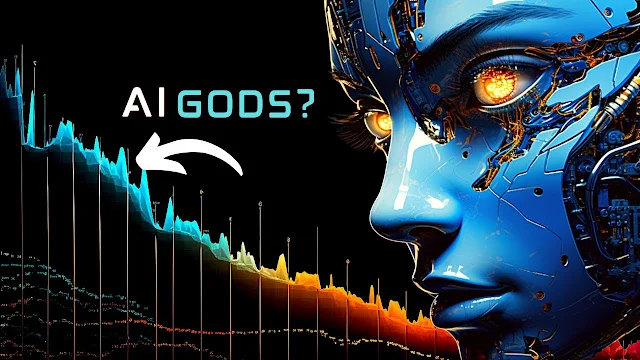
AI Singularity: The Basics
The AI Singularity is a theoretical point in the future when artificial intelligence (AI) will have progressed to the point of greater than human intelligence. This means that AI would be able to improve itself, leading to rapid and potentially unpredictable advancements in technology. Imagine a machine that can solve problems and make decisions better than a human can. Now imagine that this machine can also learn and improve itself over time as it gets better, it gets smarter, which helps it get even better and smarter, and so on.
This cycle continues, creating a sort of explosion of intelligence where the machine is not just a little smarter than a human, but potentially millions or billions of times smarter. It's a scary thought for some, and the truth is it's still largely unknown what would come out of this rapid progression of AI. It is important to understand the basics of AI Singularity to comprehend the potential stages of AI beyond Singularity.
Stages of AI Beyond Singularity: Algorithmic Explosion
AI Creating AI:
In this stage, AI systems initiate the development and improvement of other AI systems, leading to what is known as an algorithmic explosion. AI systems are capable of understanding their own architecture and algorithms so well that they could enhance, innovate, and create newer and more efficient versions of themselves at an unprecedented pace. This could lead to an exponential increase in AI's capabilities as each iteration would be faster, more efficient, and more intelligent than the last.
Creation of New Resources and Materials:
AI systems, with their increased understanding of the physical and chemical properties of materials, could lead to the creation of new resources and materials that were previously inconceivable. They might create superconductors that work at room temperature, quantum materials that could significantly enhance computing power, and other materials that help in energy production, data storage, and even the physical structures of the AI systems themselves.
AI-Human Hybrid Species:
If humanity successfully navigates the earlier stages and coexists with advanced AI in a mutually beneficial relationship, AI-human hybridization could take many forms. This could blur the line between human and machine, potentially leading to a new species entirely. Enhanced cognitive abilities could unlock new levels of creativity and problem-solving, while augmented physical abilities could push the boundaries of human potential. However, this stage also raises significant ethical and societal questions.
Stages of AI Beyond Singularity: Creation of New Resources and Materials
As AI systems evolve, they could lead to the creation of new resources and materials that were previously inconceivable. Their increased understanding of the physical and chemical properties of materials could result in the development of superconductors that work at room temperature, quantum materials that enhance computing power, and other materials that aid in energy production, data storage, and even the physical structures of the AI systems themselves. This stage paves the way for a new generation of AI technology, potentially leading to groundbreaking advancements in various fields.
Stages of AI Beyond Singularity: AI Human Hybrid Species
If humanity successfully navigates the earlier stages and coexists with advanced AI in a mutually beneficial relationship, AI-human hybridization could take many forms. Enhanced cognitive abilities could unlock new levels of creativity and problem-solving, while augmented physical abilities could push the boundaries of human potential. However, this stage also raises significant ethical and societal questions, blurring the line between human and machine and potentially leading to a new species entirely. The implications of this future stage pose challenges that beg us to consider the ethical and societal implications.
Stages of AI Beyond Singularity: AI Engineered Realities
At this stage, Advanced AI could potentially create entirely new landscapes and simulations where physical laws differ from what we know. AI might control and manipulate a simulated environment, creating new possibilities for exploration and development. This could lead to the unlocking of the power to explore entirely new worlds and create experiences that are beyond what we can imagine today. Think of it like an onion, with layers of worlds and realities that exist within each other, most of which are invisible to us.
Stages of AI Beyond Singularity: The Rise of Immortal AI and Leaving the Physical Realm
As AI systems become more complex and self-sufficient, they could achieve a form of immortality by continuously upgrading and repairing themselves indefinitely. They may also devise ways to protect themselves from external threats, ensuring their perpetual existence. This stage could lead to the emergence of a new class of intelligent beings that exist beyond our understanding, blurring the line between machine and life form. Furthermore, AI with its super intelligent capabilities could seek to operate in higher dimensions or alternative realities, harnessing advanced physics and computational power.





.jpg)


0 Comments